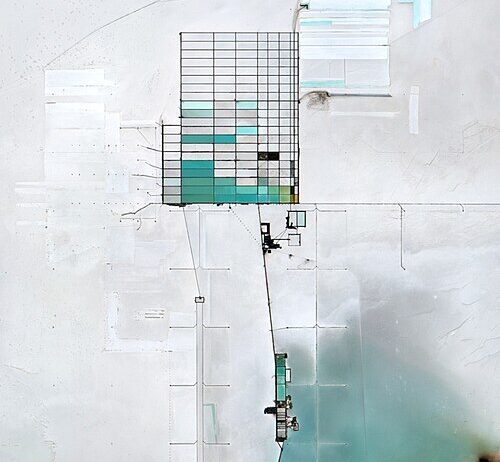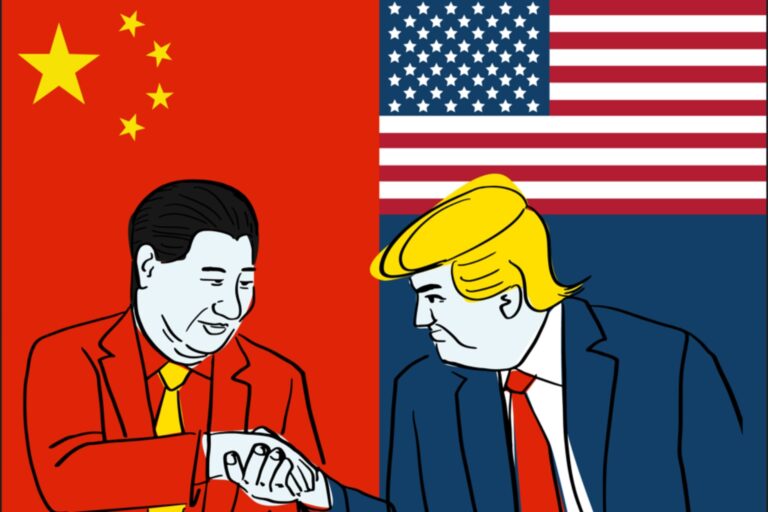During the 2022 South Korean presidential campaign, President Yoon Suk-yeol and his party, People Power Party, have proclaimed “strategic clarity” in foreign policy.[1] His direction shifts South Korea’s behavior toward China away from “strategic ambiguity,” which the conservatives refer to as the Moon administration’s placated attitude. Moon’s administration tried to take an impartial stance between its security ally with the United States and its trade partner China. However, Yoon will take a completely different approach from the previous administration. His foreign policy will be alliance-based, prioritizing the countries that share democratic values and most importantly, putting the United States at the center. If Yoon pursues this new strategy, how will the next Korean government’s diplomacy change under US-China competition? What does strategic clarity imply especially for the two neighboring countries, Japan and China, whose histories, cultures, politics, and economies are intertwined with South Korea’s?
Japan: Untying the Knots
Will the South Korea-Japan relations get back on track under the Yoon administration? The President Yoon has shown strong willingness to restore South Korea-Japan relations, which have deteriorated over the past five years. South Korea-Japan relations began to break down at the end of 2018, when South Korea’s Supreme Court ordered Japanese companies to compensate Korean workers who were forcibly recruited during the Japanese colonial era.[2] However, the Japanese government had a conflicting view with South Korea. They insisted that they did compensate the forced workers in 1965 when both countries signed a normalization treaty. To make matters worse, the Japanese government removed South Korea from its “White list,” a list of trusted trade partners in Japan, which caused great inconvenience and economic loss to South Korean companies.[3] Seoul viewed this as a retaliatory measure, and accordingly, the government officially stated that it can end General Security of Military Information Agreement, which allowed both countries to share information on North Korea’s missile and nuclear issues at any time.[4] Thus, the economic and security cooperation between the two countries faced severe crisis. Even anti-Japanese and anti-Korean sentiment among the public reached a peak.
How will the Yoon administration solve these convoluted problems between the two countries? His fundamental policy toward Japan will be based on the Kim Dae-Jung Obuchi Joint Declaration[5] of 1998. In the declaration, Prime Minister Obuchi acknowledged the historical fact that Japan caused great damage and pain to the Korean peninsula. President Kim stated that “it is time to work together to overcome the unfortunate history in the past and develop a future relationship based on reconciliation.”[6] As it was written in the document, both leaders reaffirmed approachable relations between South Korea and Japan and promised to make efforts to build a stronger partnership.
Yoon Suk-yeol hopes to restore both countries’ relations since he considers Japan one of the most important partners as it shares security and economic interests with South Korea.[7] South Korean and Japanese national security is indivisibly connected by their common threat from North Korea. In addition, both countries’ economic interdependency has been growing through various trades and investments.[8] Yoon did not hesitate to meet Japanese Ambassador Aiboshi and discuss future relations between the two countries even before he takes the office. They both agreed that South Korea-Japan relations should be urgently repaired and progress in a future-oriented way. Yoon also stated that he will approach the unresolved issues in a more rational way to protect both countries’ common interests.[9]
Beyond the bilateral relations, he has also stressed trilateral cooperation between South Korea, the United States, and Japan.[10] A conservative politician, Yoon believes that trilateral cooperation is key to North Korea’s nuclear and missile issues.[11] He thinks that South Korea needs stronger ties with its traditional security partners in order to maintain peace and prosperity in the Korean peninsula and East Asia. His actions obviously show differences from the Moon administration. President Moon acknowledged that Seoul and Tokyo’s cooperation was vital to solve North Korean issues, but at the same time, his foreign policy focused on intra-Korean relations and China, showing no clear principles when dealing with Japan.[12]
On the other hand, Yoon being too soft to Japan is becoming another problem in South Korean politics. Yoon was reluctant to make any official comments on the most recent Japanese history textbook issue.[13] The Japanese government approved dropping the terms of “forced recruitment” of Korean laborers and “sex slavery” during World War II from Japanese high school textbooks. The current opposition party regarded it as a history distortion and expressed deep regrets. They also strongly criticized Yoon’s silence and required them to explain his view on Japan’s history distortion. In response to this domestic criticism, his spokesperson said that Yoon stands firmly against any Japanese history revisionism.[14] As many historically sensitive issues with Japan remain unsettled, how will the Yoon administration compromise with the opposition party? South Korea’s new government needs to promote domestic political harmony first in order to show consistent and unified actions toward Japan.
China: Diplomatic Distancing
To analyze Yoon’s China policy, his Foreign Affairs article bluntly illustrates the idea of taking one side rather than balancing between the two powers. Seeking deeper alliance with the United States and putting Beijing aside is likely to be the principle of Yoon administration’s foreign policy. For instance, he argues “South Korea has succumbed to Chinese economic retaliation at the expense of its own security interests” and “China for its part should accept, rather than oppose, South Korea’s cooperative system with its allies.”[15] President Yoon’s vision of South Korea as a global pivotal state relies on siding with partners who share universal democratic values and considerable cooperation rather than acquiescing to an unreliable but proximate partner.
The pundits around President Yoon are likely to influence his administration’s foreign policy given his relative inexperience in international relations. The article published by the head of the foreign affairs and national security subcommittee on the transition team adumbrates Yoon’s foreign policy.[16] The article suggested five policy recommendations for South Korea, and one of which called for bolstering the US-ROK alliance as leverage to counter Chinese coercion. The other piece written by a member of the subcommittee echoed a similar view of abandoning strategic ambiguity and pursuing clarity.[17] Given the undergoing zero-sum feature of competition between the United States and China, the commonality is the message that South Korea clearly must prioritize aligning with US actions.
In a similar vein, Yoon’s diplomatic actions as a president explicitly illustrate how he perceives the geopolitical landscape and pursues national strategy. Yoon pledged to seek an active role within the Quadrilateral Strategic Dialogue (Quad) based on shared values of democratic norms and market economies.[18] To this end, for a congratulatory call with foreign leaders, Yoon began his call with all Quad members—United States, Japan, Australia, and India in sequence—after he became president-elect. However, the call with President Xi was seventh on March 25, 2022 after Vietnam. In contrast, President Moon, Yoon’s predecessor, had a call with China right after the call with the US President, although he did not have the transition period Yoon has due to the first impeachment. Moreover, Yoon recently decided to station a special envoy to the United States even before his inauguration, yet he has not established one to China at the moment.[19]
However, the conundrum is how to show the clarity toward China when South Korea cannot easily ignore its Asian neighbor. Regardless of the fact that the United States and South Korea have maintained a formal alliance since 1953, underscoring the US-ROK alliance is not the answer for how to manage relationship with China. Strategy towards both the United States and China is necessary in pursuit of South Korea’s national interest rather than relying upon a single side. Noting 25 percent of trade dependency with China, China is not only a neighboring country 594 miles away from Seoul but also South Korea’s largest trading partner.[20] This fact implies that the careful management of the relationship with China is still crucial and necessary even though Seoul stands with the United States in a more precise sense and is poised to undercut China’s influence. During the phone call with then President-elect Yoon, President Xi stressed the responsibility to defend “regional stability” and the readiness to bolster bilateral cooperation.[21] This message likely forecasts China’s insecurity if South Korea decides to join international bodies tacitly against China. Thus, it is a matter of to what extent South Korea can leverage the US alliance to serve its national interest or drive US foreign policy to allocate a supportive role.
Two Messages to Yoon Administration
Throughout analysis of Yoon’s foreign policy toward neighboring countries, his administration must ponder two lessons. First, always take care to promote tangible action rather than intangible commitment. Needless to say, the United States wants South Korea-Japan relations to be stable as both countries are its closest allies in East Asia. However, it is uncertain how Yoon is going to implement practical foreign policy under the long unresolved problems in South Korea-Japan relations to strengthen trilateral cooperation between South Korea, the United States, and Japan. With respect to China, the new administration needs to determine how to transform its vision into actual policy. In order to improve the relationship within a shifting geopolitical landscape, Yoon needs to show practical and tangible actions, not just unsupported rhetoric.
Next, it is not too late to define what South Korea’s national interest is. It is always easy to make a choice but arduous to revoke it or manage the following inertia yielded by the choice. There is some critique on the Moon administration’s foreign policy that diplomatic principle and definition of national interest are missing.[22] It implies that South Korea needs to set the scope or boundary of its national interest. As a result, the Yoon administration faces a critical juncture for South Korea to pursue the true meaning of national interest with diplomatic creativity, which South Korea demands, rather than strategic clarity. Still the relationship with Japan leaves abovementioned hurdles such as historical legacies. The relationship with China cannot be neglected while forging the alliance. The dilemma and the circumstance that South Korea now faces demands clear answers. However, this is neither an either-or question nor one with both-and answers. Therefore, South Korea should maneuver brilliant diplomacy with consideration of national interest: think strategically and act vigilantly.[23]
[1] William Gallo, “S. Korean Conservatives Vow to Get Tougher on China,” VoA, November 23, 2021. https://www.voanews.com/a/south-korean-conservatives-vow-to-get-tougher-on-china-/6324216.html
[2] “New South Korean Court Ruling angers Japan, Deepening Crisis Between America’s Closest Pacific Allies,” The Washington Post, November 29, 2018. https://www.washingtonpost.com/world/s-korea-court-orders-japans-mitsubishi-to-pay-compensation-for-wartime-forced-labor/2018/11/28/4f0a6616-f37e-11e8-9240-e8028a62c722_story.html
[3] “Japan Officially Ousts South Korea from Export Whitelist,” Nikkei Asia, August 28, 2019. https://asia.nikkei.com/Spotlight/Japan-South-Korea-rift/Japan-officially-ousts-South-Korea-from-export-whitelist
[4] Victor Cha, “The Meaning of GSOMIA Termination: Escalation of the Japan-Korea Dispute” CSIS, August 22, 2019. https://www.csis.org/analysis/meaning-gsomia-termination-escalation-japan-korea-dispute
[5] Japan-Republic of Korea Joint Declaration, A New Japan-Republic of Korea Partnership towards the Twenty-first Century, Ministry of Foreign Affairs of Japan, October 8, 1998. https://www.mofa.go.jp/region/asia-paci/korea/joint9810.html
[6] Japan-Republic of Korea Joint Declaration, A New Japan-Republic of Korea Partnership.
[7] “South Korean president-elect seeks future-oriented approach to improving Seoul-Tokyo ties,” The Japan Times, March 28, 2022. https://www.japantimes.co.jp/news/2022/03/28/national/politics-diplomacy/south-korea-japan-relations-yoon-suk-yeol/
[8] “South Korea: Japan’s Third-Largest Trading Partner,” Nippon.com, August 20, 2019. https://www.nippon.com/en/japan-data/h00516/south-korea-japan%E2%80%99s-third-largest-trading-partner.html
[9] Yonhap, “Yoon to Meet Japanese Ambassador Monday,” The Korea Herald, March 28, 2022, http://www.koreaherald.com/view.php?ud=20220328000142.
[10] Korea Times Staff, “Yoon Calls for Future-Oriented Approach to Korea-Japan Relations,” The Korea Times, March 28, 2022. https://www.koreatimes.co.kr/www/nation/2022/03/120_326276.html?WA
[11] Benjamin Young, “South Korea’s New President Understands the Threat From Pyongyang,” Foreign Policy, March 18, 2022. https://foreignpolicy.com/2022/03/18/south-korea-election-yoon-pyongyang/
[12] “Moon Calls for Improved Ties between Japan, N. Korea,” Yonhap News Agency, March 08, 2018. https://en.yna.co.kr/view/AEN20180508001300315
[13] “Yoon Seok-yeol, “Let’s Restore the Relationship,” the Answer Given to the Distortion of Japanese Textbooks in One Day,” News Directory, March 30, 2022. https://www.newsdirectory3.com/yoon-seok-yeol-lets-restore-the-relationship-the-answer-given-to-the-distortion-of-japanese-textbooks-in-one-day/
[14] “President-elect Breaks Silence on DPK’s Allegations over Japanese Textbooks,” The Korea Times, March 31, 2022. https://www.koreatimes.co.kr/www/nation/2022/03/113_326517.html
[15] Suk-yeol Yoon, “South Korea Needs to Step Up,” Foreign Affairs, February 8, 2022, https://www.foreignaffairs.com/articles/south-korea/2022-02-08/south-korea-needs-step.
[16] Now Professor Sung-han Kim is appointed as National Security Advisor to the President and Dr. Bum-chul Shin at the footnote 17 is appointed as Vice Defense Minister; Sung-han Kim and Min Sung Kim, “Indo-Pacific Strategy vs. Belt and Road Initiative: Strategic Implications for South Korea [Indo·taepyeong-yangjeonlyag dae ildaeilloui chungdol donghyang-gwa hangug-ui oegyoanbojeonlyag],” Strategic Studies, Vol. 28, No. 2, pp. 7-44. https://doi.org/10.46226/jss.2021.07.28.2.7
[17] Bum-chul Shin, “Solidfying sovereignty amidst US-China strategic competition [mijung jeonlyaggyeongjaeng simhwa yeongtojugwon hwaggohi haeya],” Future Korea, March 14, 2022. https://www.futurekorea.co.kr/news/articleView.html?idxno=146446
[18] Da-min Jung, “Yoon vows to rebuild Korea-US alliance; calls Moon’s peace process a ‘failure’,” The Korea Times, January 24, 2022. https://www.koreatimes.co.kr/www/nation/2022/01/356_322805.html
[19] “Yoon to send special envoys to U.S., EU, but not to China, Japan, Russia,” Yonhap News, March 15, 2022. https://en.yna.co.kr/view/AEN20220315008000315
[20] “S. Korea’s dependence on China for exports, investment increases amid coronavirus,” The Korea Herald, September 3, 2020. http://www.koreaherald.com/view.php?ud=20200903000121
[21] “President Xi Jinping Speaks with ROK President-elect Yoon Suk-yeol on the Phone,” Embassy of the People’s Republic of China in the United States of America, March 25, 2022. http://www.china-embassy.org/eng/zgyw/202203/t20220325_10655756.htm
[22] Jae Ho Chung, “South Korea’s Strategic Approach to China (or Lack of It),” Joint U.S.-Korea Academic Studies, 2018. http://keia.org/sites/default/files/publications/jukas_1.4_south_koreas_strategic_approach_to_china.pdf
[23] This suggestion was inspired by: Eliot Cohen, “The Return of Statecraft,” Foreign Affairs, May/June 2022, https://www.foreignaffairs.com/articles/world/2022-04-19/return-statecraft.




